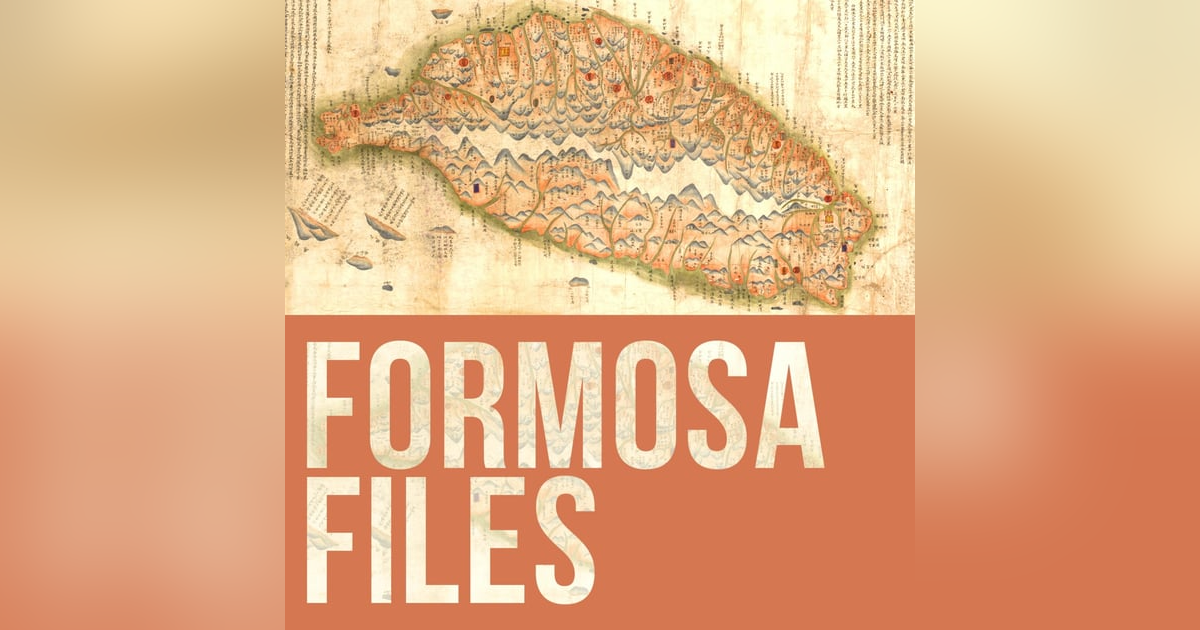
Sign up to get updates from us
By signing up, you agree to receive email from this podcast.
In 1968, just 23 years after the end of WWII, Japan became the world’s second-largest economy (and would remain so until 2011, when it was overtaken by China). In 1970, Japan highlighted its rise from the ashes by holding the Osaka Expo, a showcase of technology, culture, and confidence — from a mo…
Everyone knew it was coming, but when U.S. President Carter announced on Dec. 15, 1978 that Washington D.C. was switching diplomatic recognition from Taipei to Beijing in two weeks, both the Taiwanese people and the foreign community (then mostly Americans) were shocked. On that historic day of …
NOTE: This episode is not suitable for young children. In part one, we begin in Saigon in 1963 before returning to Taiwan in the days before the nation became a full democracy. The stories and asides lead to Nylon Deng (Cheng Nan-jung 鄭南榕), a hardcore Taiwanese pro-democracy and pro-independence…
With a new intro and ending, this is a rerelease of one of our more popular episodes: the story of the decision by former U.S. president Jimmy Carter (1924-2024) to follow through with previous administration commitments to recognize the People’s Republic of China. The switch from the ROC to the P…
Not so long ago, talking about Taiwan independence could earn you a lengthy prison term. That changed in the late 1990s as Taiwan embraced democracy. Taiwan independence advocates in the United States have always enjoyed more freedom of speech, but pro-independence organizations that pulled stunts …
Former U.S. president Jimmy Carter only served one term, but those four years were rough: oil embargos, inflation, the Iran hostage crisis, and the decision to recognize the People’s Republic of China (PRC). It was an unpopular move, especially in Taiwan. President Carter asked his deputy secretary…
In the summer of 1973, a young Mike Chinoy finagled his way onto one of the earliest trips of civilian Americans to “Red China.” He would later become CNN’s China correspondent – moving to the PRC in 1987 – and became famous as he reported live on the infamous events that transpired in and around T…
Linda Arrigo has been in Taiwan for many years, working as a human rights activist, as an important member of the early team of fighters who risked life and limb for a democratic Taiwan, and more recently, worked with the Taiwan Green Party on environmental issues such as stopping NPP4. She's also …
Long hailed as a “historic diplomatic breakthrough,” the reality is that US president Richard Nixon's 1972 trip to China has been rather oversold. Yes, the brief Mao-Nixon meeting did start a thaw in relations, but Nixon may have given more than he got. Here’s a gripping tale of geopolitical strate…
After the Americans introduced baseball to Japan in the late 19th century, Japan took the game John Ross might call "a corruption of cricket" to their new colonial possession, where it became a hit. Surviving -- somewhat surprisingly -- the arrival of the Nationalists in 1949, baseball was official…
How do you get a famous, one-armed democracy activist -- who is under house arrest and being watched 24/7 by the authorities -- off of a well-guarded, militarized island? Hint: A team of brave supporters, some forgery, and a whole lot of chutzpah. Hear the conclusion of the tale of the amazing life…
Dr. Peng Ming-min (彭明敏) was a Taiwanese pro-independence/pro-democracy activist who lived an exceptional life - losing an arm in a WWII US air raid, witnessing the atomic bombing of Nagasaki, and being arrested for sedition after returning to Taiwan -- to name just a few of the amazing parts of his…
After the U.S. dropped an atomic bomb on Hiroshima in 1945, nations around the world began thinking about acquiring nuclear weapons of their own. Among them was China, then ruled by supreme leader Chiang Kai-shek. The Nationalists' retreat to Taiwan interrupted those early ambitions, but when the P…